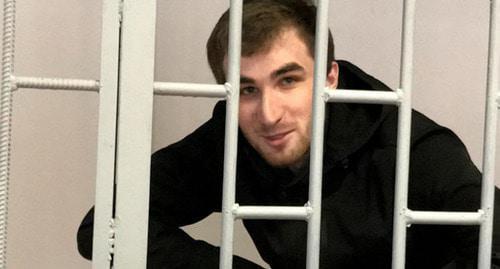
01 November 2018, 08:17
Court postpones decision on CER of Geriev, "Caucasian Knot" correspondent
The Supreme Court (SC) of Chechnya has postponed the decision on the appeal for the conditional early relief (CER) of Zhalaudi Geriev, a "Caucasian Knot" correspondent, until November 8.
The "Caucasian Knot" has reported that on October 30, the Chechen SC began considering the appeal of Prosecutor Dushin against the decision to use CER to Zhalaudi Geriev. A source from the Prosecutor's Office said that the decision would not be in Geriev's favour. Alaudi Musaev, an advocate, also believes this outcome to be most likely.
In September 2016, Zhalaudi Geriev was sentenced to three years in prison on charges of possessing marijuana. His defence insists on the illegality of the sentence.
His advocate says that his client behaved positively in the colony.
However, a woman-colony representative has stated at the SC that Geriev has failed to prove his correction for the entire period of serving his sentence. According to her story, according to the results of the psychological examination, Geriev "revealed a trend towards deviate behaviour."
Let us remind you that the Human Rights Centre (HRC) "Memorial" had declared Geriev to be a political prisoner.
This article was originally published on the Russian page of 24/7 Internet agency ‘Caucasian Knot’ on October 31, 2018 at 10:36 pm MSK. To access the full text of the article, click here.




